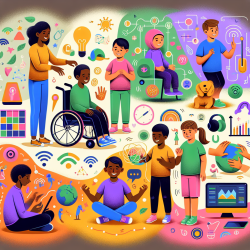Mental health care for immigrant populations often requires a nuanced understanding of cultural and religious influences. A recent study titled Examining recovery and mental health service satisfaction among young immigrant Muslim women with mental distress in Quebec sheds light on the unique challenges faced by young Muslim women in accessing mental health services. This blog post explores the study's findings and offers guidance for practitioners seeking to improve their skills and foster recovery in this population.
Understanding Cultural Barriers and Facilitators
The study identified three key themes impacting the mental health journey of young Muslim women:
- Stigma and Misunderstandings: Family and community often hold stigmatizing views about mental illness, perceiving it as a sign of insufficient faith or moral failing. This stigma can deter individuals from seeking help.
- Cultural Competence in Therapy: Many participants reported negative experiences with therapists who lacked cultural and religious understanding. This gap often led to dissatisfaction with services and hindered the development of a therapeutic alliance.
- The Role of Religion: Religious beliefs and practices were found to be strong facilitators of recovery, providing structure, meaning, and hope.
Strategies for Practitioners
The findings suggest a three-pronged approach to enhance mental health care for young Muslim women:
- Anti-Stigma Interventions: Collaborate with Muslim community groups to develop culturally sensitive mental health literacy programs. These programs should aim to educate communities about mental health realities and promote service utilization.
- Cultural Competence Training: Mental health professionals should receive training that enhances their understanding of Islamic beliefs and cultural practices. Incorporating religious elements into therapy can improve service satisfaction and outcomes.
- Developing Self-Care Resources: Create resources that integrate religious practices into self-care routines. These resources can empower individuals to use their faith as a tool for recovery while complementing traditional therapy.
The Path Forward
The study highlights the need for innovative approaches that bridge the gap between therapy and religion. By fostering partnerships between mental health professionals and religious leaders, we can create supportive environments that respect cultural values while promoting psychological well-being.
This research underscores the importance of cultural competence in mental health care. Practitioners are encouraged to engage with further research to deepen their understanding and refine their approaches to supporting young Muslim women with mental distress.
To read the original research paper, please follow this link: Examining recovery and mental health service satisfaction among young immigrant Muslim women with mental distress in Quebec.










